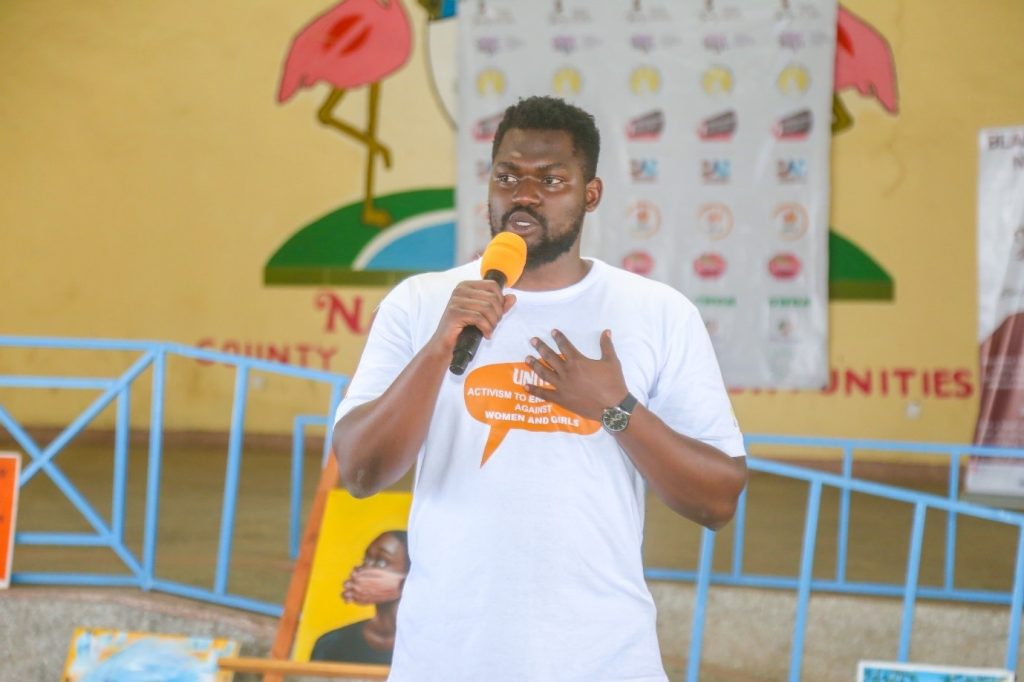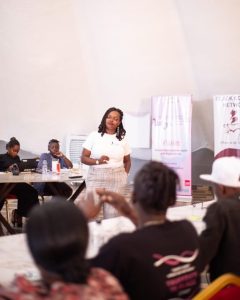BCN experiences on implementation of the ISJA tool
 19 September 2023
19 September 2023

The Circle of Concerned African Women Theologians conducted a one-on-one discussion with the Executive Director of Black Coffee Network (BCN), Chris Matagaro. The aim of the discussion was to understand BCN experiences on implementation of ISJA.
According to Chris, SRHR, religion and young people is about creation of safe spaces where young people can have access to information and discuss Sexual and Reproductive Health (SRHR) issues like teenage pregnancy, SGBV, HIV etc, to facilitate informed decision making. These are the conversations that religious leaders need to have so that they can become a point of information and safe space for young people when it comes to SRHR. ISJA tool is unique, because it’s the religious texts that is used to initiate SRHR discussion, it’s not like using a medical approach to address SRHR issues but rather using a religious approach. Through ISJA, Black Coffee Network (BCN) have been able to have an entry point to conduct lobby and advocacy in religious spaces and also engaging with the religious leaders, a gap that has been filled through the Make Way Programme.
ISJA has empowered young people in the Black Coffee Network. Through the tool, the youth can now engage religious leaders and ask questions, questioning is not resistance but dialogue. Religious spaces are considered as a safe space but most of them are not safe from our experience as BCN working in the community, people still go to the religious spaces and listen but don’t have the opportunity to ask questions on what the religious leaders is presenting. This has made many young people not to go to the religious spaces because of fear of judgment and lack of understanding.

Angela Kioko, BCN Make Way Programme Officer, facilitating during the ISJA lobby and advocacy activity.
The ISJA tool has broken the barrier, by offering an opportunity to engage in discussions with young people, ask questions and develop action plans thus creating a sense of ownership and sustainability.
My experience as an ISJA trainer has been amazing, I have been able to share and empower young people especially on how to engage with religious leaders both in Kenya, Rwanda and Ethopia using ISJA. The ISJA has an approach that is new, a concept that considers the various gaps that are there within religious spaces and leaders, and acknowledging the fact that there is need to create safe spaces as it will help to engage with young people more.
BCN have also been able to engage other civil society organizations in the Nakuru SRHR working group, a group of about fifteen organizations that now understands what intersectionality and ISJA. Recently BCN conducted a lobby and advocacy activity using ISJA to identify the religious and cultural barriers to the provision of youth friendly services. Among the participants during the activity were both religious leaders from the Muslim and christian religions, healthcare providers, youth led CSOs and persons with disability. During the session, an Imam was very curious and was able to understand what the ISJA tool is all about. There was also an acknowledgement from the Imam that there is a gap when it comes to religion and SRHR and something needs to be done. During the implementation of the activity BCN realized practically that ISJA is very flexible and can accommodate different religions and can facilitate SRHR discussions in a respectful way among different stakeholders.



